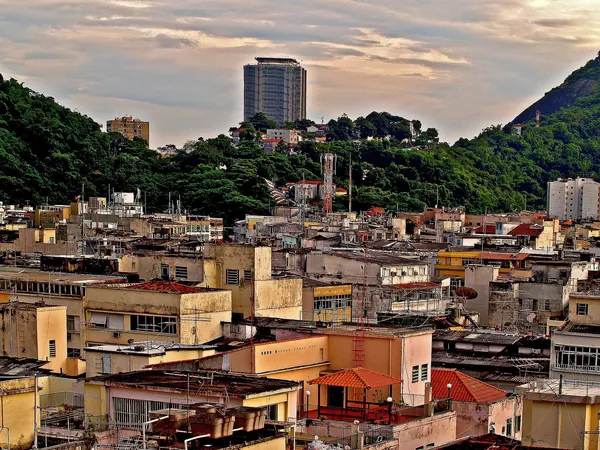
Major Breakthrough: Brazil's Programa Bolsa Família Cuts Tuberculosis Cases Among the Poorest by Over 50%
2025-01-03
Author: Daniel
Major Breakthrough: Brazil's Programa Bolsa Família Cuts Tuberculosis Cases Among the Poorest by Over 50%
In a remarkable health achievement, Brazil's Bolsa Família Program (BFP) has successfully reduced tuberculosis (TB) cases and deaths by more than half among the country's poorest and Indigenous communities. This significant finding is highlighted in a comprehensive study conducted by the prestigious Barcelona Institute for Global Health (ISGlobal) and published in the journal Nature Medicine. The results carry profound implications for public health strategies concerning social protection and tuberculosis control not just in Brazil but globally.
The Bolsa Família Program, initiated in 2004, stands as one of the largest conditional cash transfer programs in the world. It provides crucial financial aid to impoverished families under strict conditions; beneficiaries must ensure their children receive medical check-ups and attend school. While these financial transfers are well-documented for tackling economic and social disparities, they are also shown to positively influence health metrics, reducing child and maternal mortality rates as well as cases of HIV.
Tuberculosis remains one of Brazil's leading infectious killers, particularly affecting low- and middle-income populations, where it is intricately tied to poverty. "While poverty is a known driver of TB, prior to this study, we lacked a complete analysis of cash transfers' impacts on disease outcomes among the most affected demographics," explained Davide Rasella, the study's lead coordinator and head of Health Impact Assessment and Evaluation at ISGlobal.
The research team scrutinized extensive data spanning from 2004 to 2015, covering the ethnic and socioeconomic status of 54.5 million impoverished Brazilians. They compared TB incidence and mortality rates among 23.9 million individuals receiving BFP benefits versus 30.6 million who did not. The study identified a staggering 159,777 new TB cases and 7,993 TB-related deaths within this varied population cohort.
Significantly Larger Impact on Vulnerable Groups
The study's findings revealed a dramatic drop in TB cases and fatalities among beneficiaries of the Bolsa Família. Specifically, individuals in extreme poverty experienced a more than 50% decrease, while Indigenous communities saw reductions exceeding 60%. Although the program yielded benefits across all socioeconomic classes, the impact was markedly less pronounced among those who were moderately poor, indicating a clear correlation between economic support and health improvements.
One possible explanation for this remarkable impact lies in the program's ability to enhance food security. "The BFP improves both the quality and quantity of food access, which diminishes food insecurity and malnutrition—a significant risk factor for TB. Improved nutrition strengthens immune responses and lowers barriers to accessing healthcare," noted Gabriela Jesus, co-first author of the study.
Global Ramifications and Future Directions
The insights gained from this research are especially pertinent as Brazil works to address the rising TB case numbers among vulnerable populations exacerbated by the COVID-19 pandemic. However, the implications of the study resonate well beyond Brazil's borders. As Rasella states, "Our findings highlight critical lessons for policymakers in countries grappling with high TB burdens."
In conclusion, the evidence strongly suggests that social protection programs like the Bolsa Família are not only vital for alleviating poverty and hunger but could also play an essential role in achieving global health targets, such as those outlined in the END-TB strategy and the Sustainable Development Goals. This research serves as a powerful reminder of the intersection between poverty alleviation and health outcomes, urging world leaders to prioritize social safety nets in their health strategies.

 Brasil (PT)
Brasil (PT)
 Canada (EN)
Canada (EN)
 Chile (ES)
Chile (ES)
 Česko (CS)
Česko (CS)
 대한민국 (KO)
대한민국 (KO)
 España (ES)
España (ES)
 France (FR)
France (FR)
 Hong Kong (EN)
Hong Kong (EN)
 Italia (IT)
Italia (IT)
 日本 (JA)
日本 (JA)
 Magyarország (HU)
Magyarország (HU)
 Norge (NO)
Norge (NO)
 Polska (PL)
Polska (PL)
 Schweiz (DE)
Schweiz (DE)
 Singapore (EN)
Singapore (EN)
 Sverige (SV)
Sverige (SV)
 Suomi (FI)
Suomi (FI)
 Türkiye (TR)
Türkiye (TR)
 الإمارات العربية المتحدة (AR)
الإمارات العربية المتحدة (AR)